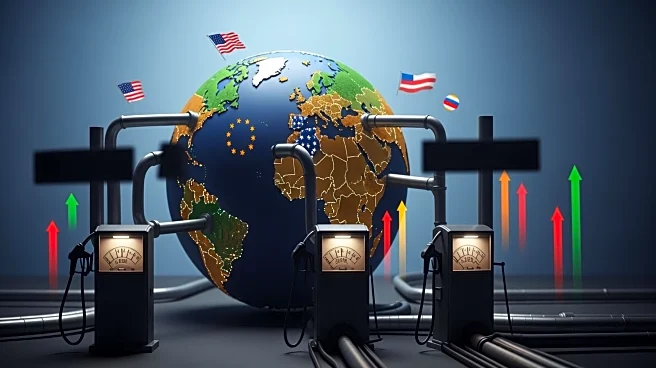What's Happening?
The United States, in coordination with the European Union, has imposed significant new sanctions on Russia's oil industry. This move is part of an effort to pressure Russian President Vladimir Putin to negotiate
an end to the ongoing conflict in Ukraine. As a result of these sanctions, oil prices have surged, with U.S. benchmark crude rising by 5.6% to $61.79 per barrel. Analysts, including Patrick De Haan from GasBuddy, predict that U.S. consumers will soon experience higher prices at the pump, potentially within the next week. The sanctions target major Russian oil companies such as Rosneft and Lukoil, following calls from Ukrainian President Volodymyr Zelenskyy and bipartisan pressure on President Trump to intensify economic measures against Russia.
Why It's Important?
The sanctions and subsequent rise in oil prices could have widespread economic implications in the United States. Higher energy costs are likely to increase prices for gasoline, diesel, and jet fuel, which in turn could lead to inflationary pressures across various sectors. This development comes at a time when inflation has been relatively stable, partly due to lower fuel prices. The sanctions are also a strategic move to weaken Russia's economic capacity to sustain its military operations in Ukraine. However, the increased cost of oil could strain U.S. consumers and businesses, potentially impacting economic growth and consumer spending.
What's Next?
The situation remains fluid, with potential changes depending on the responses from Russia and the U.S. If oil prices continue to rise to uncomfortable levels, President Trump may take action to mitigate the impact on American consumers. Additionally, the OPEC+ alliance, which includes Russia, is scheduled to meet on November 2 to discuss oil production levels. Any decisions made during this meeting could further influence global oil prices and the economic landscape.










